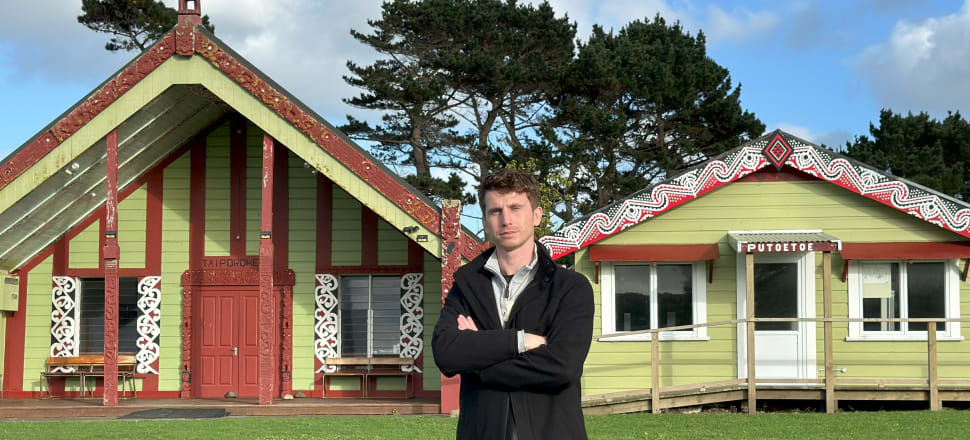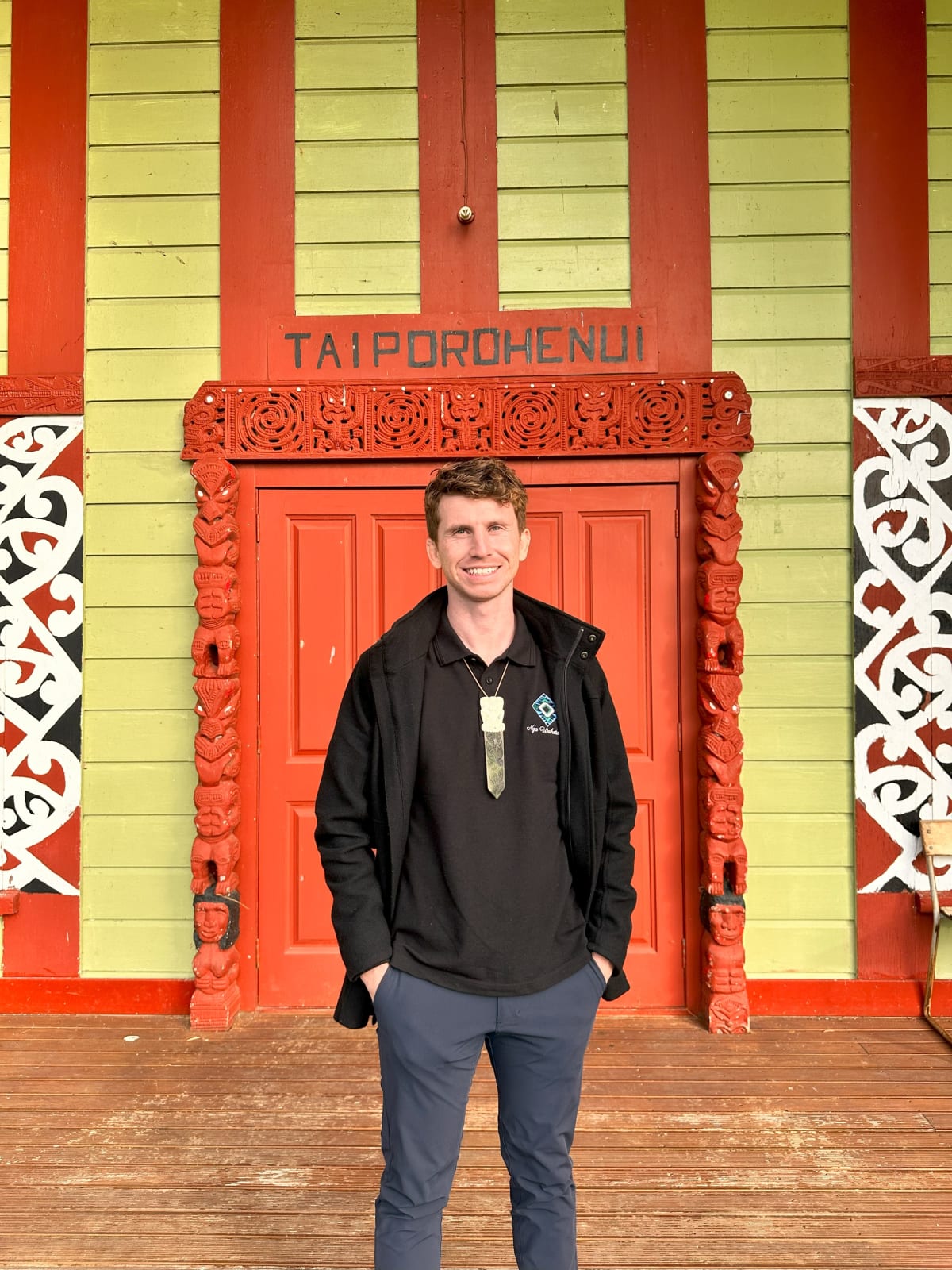
An author conducts a tour of kura reo at Pariroa Pā in Pātea
The kura reo defies being described in terms of one’s own personal experience and so is best described as blood flows through the body, a circulatory system of language, heritage and culture.
The body wakes at 6am, before the sun does, one of the mātanga calling the whare from their sleep with a karakia, the room joining them as they conclude with a tina and a taiki e, the guitar the next sound to carry and then a song from those just roused from their sleep. The whare is quick to sort their gears thereafter heading outside as the first signs of the sun creep above the horizon and all those gathered together warm their bodies at the same Papatūānuku does. At most kura reo, it’s fun and games at this hour, nothing too strenuous on the mind or the muscles.
When the warm-up is over, everybody moves to ready the whare in case visitors arrive, packing away their mattresses and putting their gears out of sight. There is an unspoken unity at these kinds of kaupapa, everybody moving as one, doing whatever needs to be done whenever it needs to be done. For the more fluent, the kōrero is abundant from this point forth and for those still on their journey, their ears do most of the mahi, searching for clues in the context of body language and the words they are familiar with. There is always some labour involved on the first day or two but by day three the brain is primed to receive and make sense of te reo Māori no matter the fluency of the speaker or the spoken to.
After the whare is prepared and everybody has had a chance to have a wash, the group gather in the wharekai for breakfast. The kōrero and the hot chocolate and the coffee flow and soon after, the dishwashing liquid, a sort of factory floor forming out the back as everyone rushes to wash, dry and stack 100 or so sets of dishes before the first akoranga of the day starts and the body separate into their respective sub-systems.
Beginners of te reo move into more rote styles of learning, rehearsing basic sentence structures and everyday questions and answers. Kei te pēhea koe? How are you feeling? Kei te pai au. I am feeling good. Kei hea te rākau whero? Where is the red stick? Kei runga te rākau whero i te tēpu. The red stick is on the table. Lessons for intermediate learners tend to focus on rearranging sentences to shift the emphasis. Ka tū au. I will stand. Māku e tū. It is I that will stand. Kua pōwhiri te haukainga i ngā manuhiri. The local people have welcomed the visitors. Kua pōwhiritia ngā manuhiri e te haukainga. The visitors were welcomed by the local people. Advanced learners focus on wānanga, each speaker an expert in their own right, the lessons less centred on achieving any one thing in particular and are more philosophical in nature, more centred on the deeper thinking that informs te reo me ona tikanga.

The lessons continue until a brain break is needed and then resume until lunch is ready. Everybody eats together and cleans up together and then what happens next can vary wildly. Perhaps there is an assignment to be done and everybody is left to tackle it in groups of their own making. Perhaps there is hangi to prepare and so the group will head off to the nearest beach to collect driftwood for the fire. Maybe there is a local place of importance to visit or a guest speaker from the haukainga to talk at length about the history and aspiration of this marae and the broader rohe it is contained within.
And so the sun’s journey across the sky continues, a day rich in kōrero Māori reminiscent, we like to think, of the way the old people organised in their own time. After a break or two then dinner and dessert and another load of dishes to rinse, wash, dry and stack, the whare is re-prepared for a restful sleep, manuhiri don’t come after the sun has set, and the remainder of the day is open to everybody to do with as they wish. The older ones tend to retire early, catching up on the sleep they no doubt missed the night prior. The more bright-eyed and bushy-tailed exhausted though they might or might not be shift into different corners of the marae. Some will reflect on the day, gossiping about this, that and the other thing. Others will set up cards, the most popular in many corners of Aotearoa a game for everybody’s inner Māui tinihanga: uka – also known as euchre. Others still will gather around a guitar and play iwi classics from the tip of Te Rerenga Wairua to the tail of Rakiura.
For the great majority of te iwi Māori who do not live and work in full-immersion spaces, there is something truly remarkable about kura reo. About every kind of rumaki reo. There is, of course, the language itself which flows here unlike it flows almost anywhere else but there is also the solidarity of Māori and non-Māori alike committed to growing and learning and becoming better versions of themselves. It’s a three to five day bootcamp for the brain, voice box and perhaps more than anything else the wairua.
What does this the latter mean exactly? Head along to the next kura reo held near you and find out for yourself.
Airana Ngarewa is the author a powerful new novel The Bone Tree (Moa, $37.99, available in bookstores nationwide. ReadingRoom is devoting all week to coverage of the author and his book. Yesterday: a portrait by author Emma Hislop. Tomorrow: a review by David Hill








